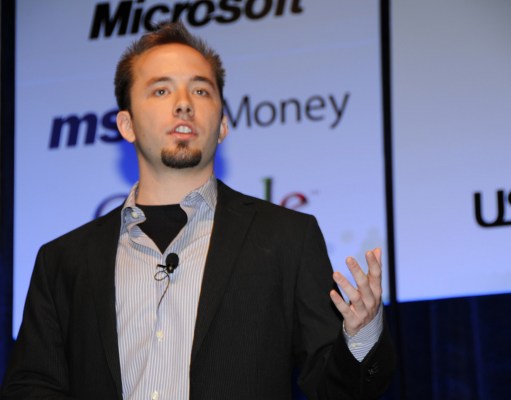NSA whistleblower Edward Snowden sparked controversy when he advised consumers (twice) to “get rid of Dropbox” if they want to protect their privacy. Today, Drew Houston, CEO of the cloud storage startup, responded to the accusations. People can do more to encrypt their data, he admitted, but It’s “a trade-off between usability/convenience and security,” he said. “We offer people choice.”
The comments, made by Houston onstage today at the Dublin Web Summit, come as a director at the UK’s GCHQ published an essay on terrorism, social media and government access to data.
Houston didn’t directly address the question of whether government organizations are justified tapping data from social networks and other big tech companies, or the ethics of whether privacy is an unalienable right, and instead focused on the user experience.
“If you offer zero knowledge encryption we understand the motivation for that, but there are downsides to it,” he said, citing services like search, access to third-party apps, seamless access to data from mobile devices and other features that would be impeded if people put more encryption into Dropbox. People can do that, though, if they choose: “Third-party tools are offered to do that, but of course that [affects making] all my stuff searchable and indexed and rendered well in previews. People have different tradeoffs.”
He also commented indirectly on what kind of an effect all of this has had on Dropbox’s image. “It’s never fun when people throw rocks,” he says. “But how many [negative] articles were there about Facebook and Zuck? There are a lot of happy things but we go from the company who can do no wrong to the one who can do no right…. You are never quite as good as people say you are but also never quite as bad.”
The stage interview started with Houston recounting how he and co-founder Arash Ferdowsi visited a pre-iCloud Apple in 2009 and rejected an acquisition offer from Steve Jobs (supposedly a nine-figure deal). And it ended with the Dropbox CEO’s thoughts about how his company has chosen to take a different route to evolve its business: partnerships.
Today Dropbox announced what Houston described as a “deep integration” with Microsoft Office, that will let users of the two services work more seamlessly across them. It’s a way for the two to bulk up against the likes of Google — and timely, too, considering that Google was having its own cloud affair today.
“There are 300 million people using Dropbox, and the biggest thing they do is work in Office documents,” Houston said of the two mutually taking advantage of each other’s positions. He described the deal as “unusual for us,” but perhaps even more so for Microsoft, considering it already has its own cloud platform, albeit less successful than Dropbox’s these days. “I can’t think of any other integrations that Microsoft has done like this.”
